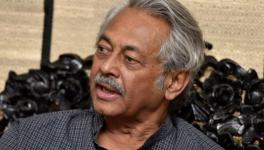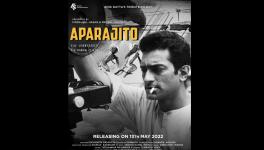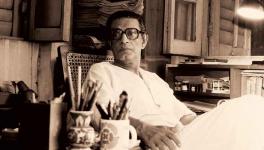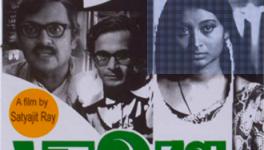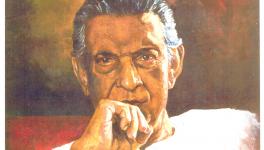Soumitra Chatterjee: Not Just Ray’s Favourite Actor
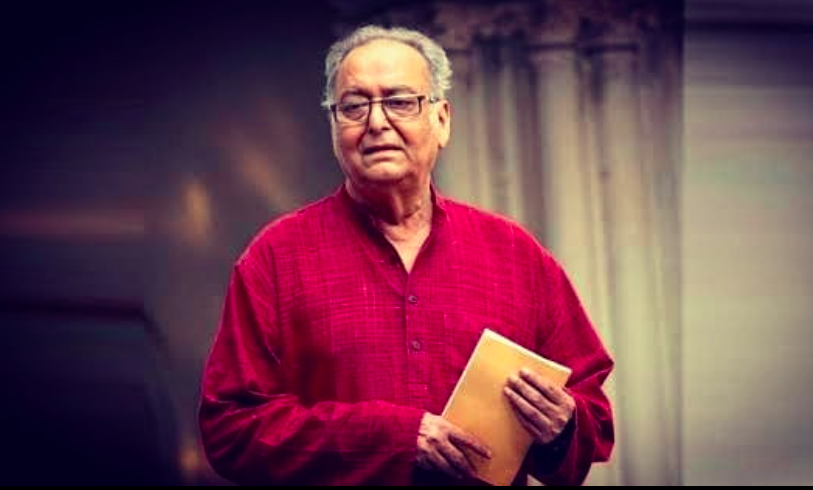
Photo Courtesy: https://www.instagram.com/soumitrachattopadhyayo/
For many Bangla film aficionados, Soumitra Chattopadhyay will be remembered as Satyajit Ray’s favourite actor. The social media commentary that followed his death on Sunday confirmed that perception once again. ‘Apu says goodbye’ or ‘Feluda passes away’ – are all comments that show how Ray’s casting of Soumitra in those roles in his films are deeply etched in the consciousness of film lovers.
Soumitra made his film debut in Ray’s Apur Sansar in 1959 and acted in 13 more films by the Oscar-winning director in subsequent years, including a few where he played the extremely popular role of a detective, who went by the moniker of Feluda. Ray made more than 30 Bangla films in his career and would invariably reserve the lead roles for debutants, barring a few exceptions. Soumitra was one of those exceptions.
Why did Ray make an exception? Ray was known to be extremely picky about the actors he believed should play the lead roles in his films. So, why didn’t Ray look for a new face who could play the role of, say, Umapada in Devi, Amal in Charulata or Gangacharan in Asani Sanket? All these roles had many layers with different dimensions. Yet, Ray chose Soumitra for all of them probably because of the latter’s superlative acting skills and the ability to subordinate his own personality to the requirement of portraying those characters.
To be fair, Ray had used many other actors in his films like Anil Chatterjee in Mahanagar, Pradip Mukherjee in Jana Aranya, Dhritiman Chatterji in Pratidwandi or even Barun Chanda in Seemabaddha. All of them were competent actors and their performance was almost flawless in those films. Yet, none of them, except Dhritiman, made another appearance in a Ray film. If Ray, therefore, chose Soumitra for playing the main roles in as many as 14 of his films, it was not because he had no options, but because Ray made a choice in favour of Soumitra and that choice was made because of the latter’s acting prowess.
For Soumitra, though, it was pure struggle all along to remain Ray’s favourite actor. Even for getting the nod from Ray to play the role of Apu in Apur Sansar, Soumitra had to wait for a few years. He had been shortlisted for Aparajito, the second of the Apu Trilogy. But he was discarded, after he met Ray, as he was found to be a little overgrown for the young Apu he was to portray.
When the third of the Apu Trilogy was to be made, Ray had invited Soumitra to watch the final days of shooting for Jalsaghar. The legendary actor, Chhabi Biswas, had just completed a shot to Ray’s satisfaction and the two were taking a break. Ray summoned Soumitra and introduced him to Chhabi Biswas as the actor to play Apu’s role in his next film, Apur Sansar.
That was how Soumitra got to know that he was about to launch his cinema career with a Ray film. It was an important junction in Soumitra’s career. He had been trained to be a stage actor by the legendary Sisir Bhaduri. With Apur Sansar, Soumitra was making a transition that would bring him under the tutelage of another legend. Ray, by then, had already gained international acclaim, bagging as many as three international awards for Pather Panchali.
In subsequent years, Soumitra would try hard to get as many roles he could get from Ray, But this was not going to be easy. Ray would not be swayed by Soumitra’s request for a role just because the two had begun to like each other. For Ray’s Goopi Gayen Bagha Bayen, Soumitra had pleaded for the role of the village singer. But Ray remained unmoved. He cast Tapen Chatterjee for that role and told Soumitra that he did not meet the requirement because he hardly looked like a villager. Soumitra was disappointed with Ray, but the two maintained their relationship to be part of many more films in subsequent years. This is what makes the relationship between Ray and Soumitra unique.
Yet, it would be grossly unfair to remember Soumitra just as an actor who played unforgettable roles in Ray’s films. In his career spanning over six decades, Soumitra acted in over 300 films. Many of his roles bring out the rare qualities of an actor, who would not be swayed by considerations of whether he would play the role of a hero or that of a villain. Indeed, his role in Jhinder Bandi and Aparichita, Soumitra acted opposite matinee idol Uttam Kumar.
Any other actor would have run away from such a role, as there was every chance of being overshadowed by a more powerful and more popular actor like Uttam Kumar. But Soumitra was a believer in the raw strength of powerful acting – a trait he must have developed during his apprenticeship under Sisir Bhaduri. In both these films, his role remained as memorable as that of Uttam Kumar.
Paying tribute to Soumitra’s acting career would not be complete if mention is not made of his role as Sukhendu Datta, a college teacher, in Saat Paake Bandha. Sukhendu marries Archana (played by Suchitra Sen), whose mother believes material success to be a bigger goal in life than the middle-class existence a teacher can afford. Not being able to tolerate the interference of his mother-in-law in their married life, Sukhendu decides to punish Archana and settles for a mutual separation. Soumitra’s portrayal of Sukhendu Datta is powerful and makes you wonder who is at fault – Sukhendu or Archana. There are no clear answers.
In the end, Soumitra should not be remembered just for the roles he played in 14 of Ray’s films. The more enduring contribution of Soumitra to the film world would be his portrayal of many characters in popular Bangla cinema as well. There was a difference. While many other contemporaries succumbed to the cheap thrills of glamour and glitz of popular cinema, Soumitra made no compromises in upholding the best standards of acting even while working for commercial cinema. That alone should reserve for him a top position in the annals of Bangla film history.
The writer is Editorial Director of Business Standard newspaper.
Get the latest reports & analysis with people's perspective on Protests, movements & deep analytical videos, discussions of the current affairs in your Telegram app. Subscribe to NewsClick's Telegram channel & get Real-Time updates on stories, as they get published on our website.











